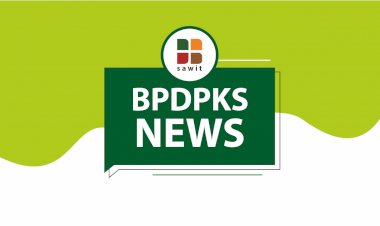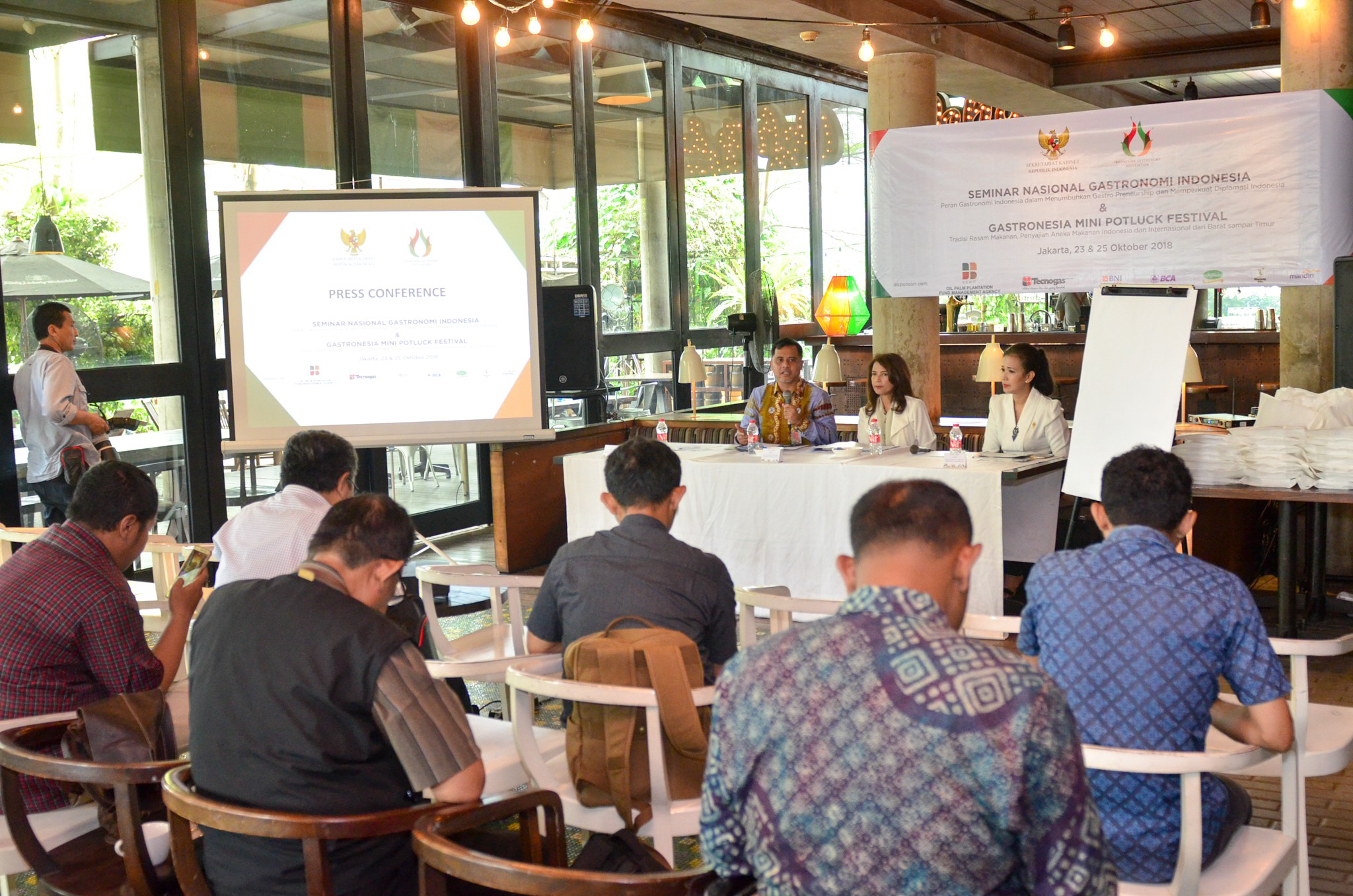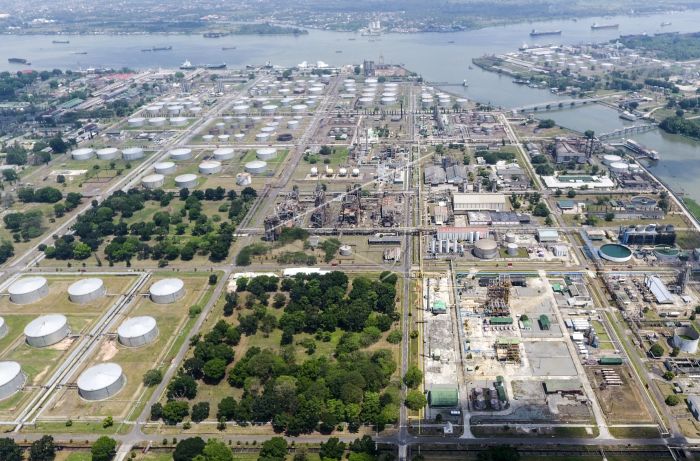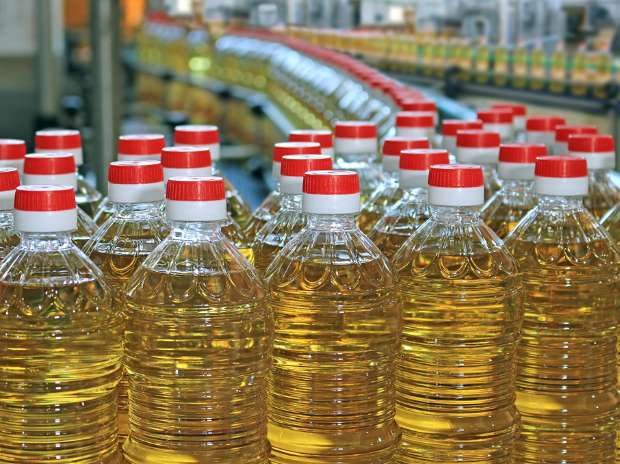ITB Develops PFAD as Feed Resources for Ruminants to Increase Milk Production
ITB is developing PFAD serving as fatty acids needed for calcium soap production. Calcium soap from PFAD can increase milk production of dairy cows as well as the fertility of cattle.
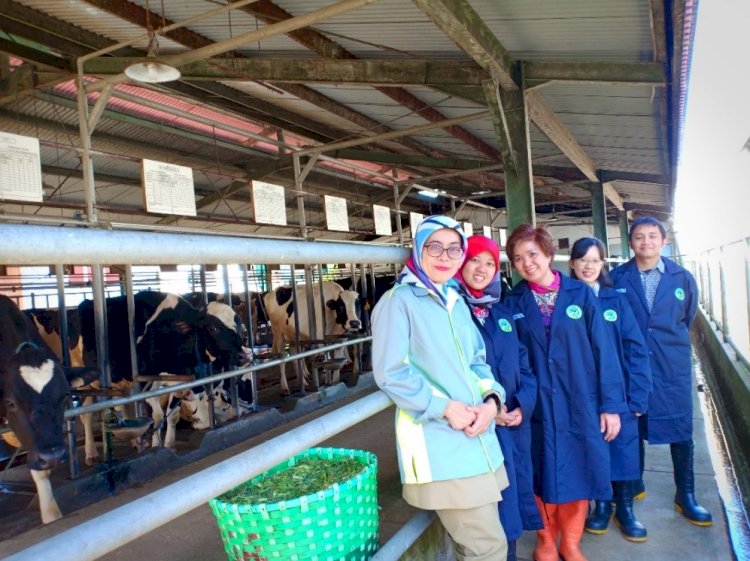
JAKARTA—As the world’s largest palm oil producers, Indonesia produces huge quantities of Palm Fatty Acid Distillate (PFAD) which is a by‐product of physical refining of crude palm oil (CPO). However, domestic use of PFAD remains low.
Dr Lienda Handojo and some researcher from Research Centre and Community Development (LPPM) at Bandung Institute of Technology (ITB) are developing PFAD serving as fatty acids needed for calcium soap production. Calcium soap from PFAD can increase milk production of dairy cows as well as the fertility of cattle.
The research, funded by the Indonesia Oil Palm Plantation Management Agency (BPDPKS), aims to generate feed supplements for dairy cattle containing high quality protected fats (rumen bypass) that enable to increase milk production, improve health, as well as fertility of the cows.
PFAD was converted into calcium soap through saponification reaction by reacting free fatty acid with hydroxide or calcium oxide. The research was carried out in two years. In the first year of the research, calcium soap products were successfully produced in laboratories scale and bench scale.
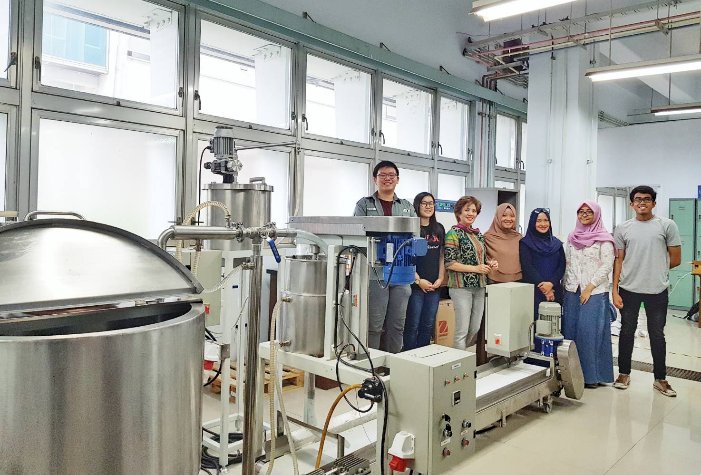
Analysis on number of fats, proximate, FTIR and in vivo showed the quality of calcium soap relatively better than commercial products available in markets. In vivo test on the cattle indicated a significant increase of milk production.
During the second year of the research, production of calcium soap was carried out in bench scale and pilot scale. Product analysis carried out in the form of physical testing of products (acid and moisture figures) as well as product nutrition testing (proximate test, in vitro, vitamin E analysis and antioxidant activity). An in vivo product trial was conducted to the dairy cattle in Lembang, West Java and Karangploso, East Java. A test of feed supplements for laying and broiler hens in Bukit Jimbaran, Bali.
Calcium fat production using pilot scale process equipment within a certain range of operating conditions can produce products that meet the criteria. Nutritional tests showed that calcium soap products on bench and pilot scales did not differ significantly as well as indicated that calcium soap products had a lower antioxidant activity and contained vitamin E which was 57 times lower than PFAD.
Feeding calcium soap to dairy cows can increase productivity and extend the lactation of dairy cows. Apart from quantity, the quality of the milk also improve since fat levels and weight increase. It will also increase price of the milk.
The results of this research are very beneficial for the supply of high quality feed for ruminants using raw materials that are easily found in the country. Currently, the productivity of dairy cattle in Indonesia remains low driving the country to import milk in order to meet domestic demand. Improving technology and the industry of calcium soap may respond to the challenge. ***

